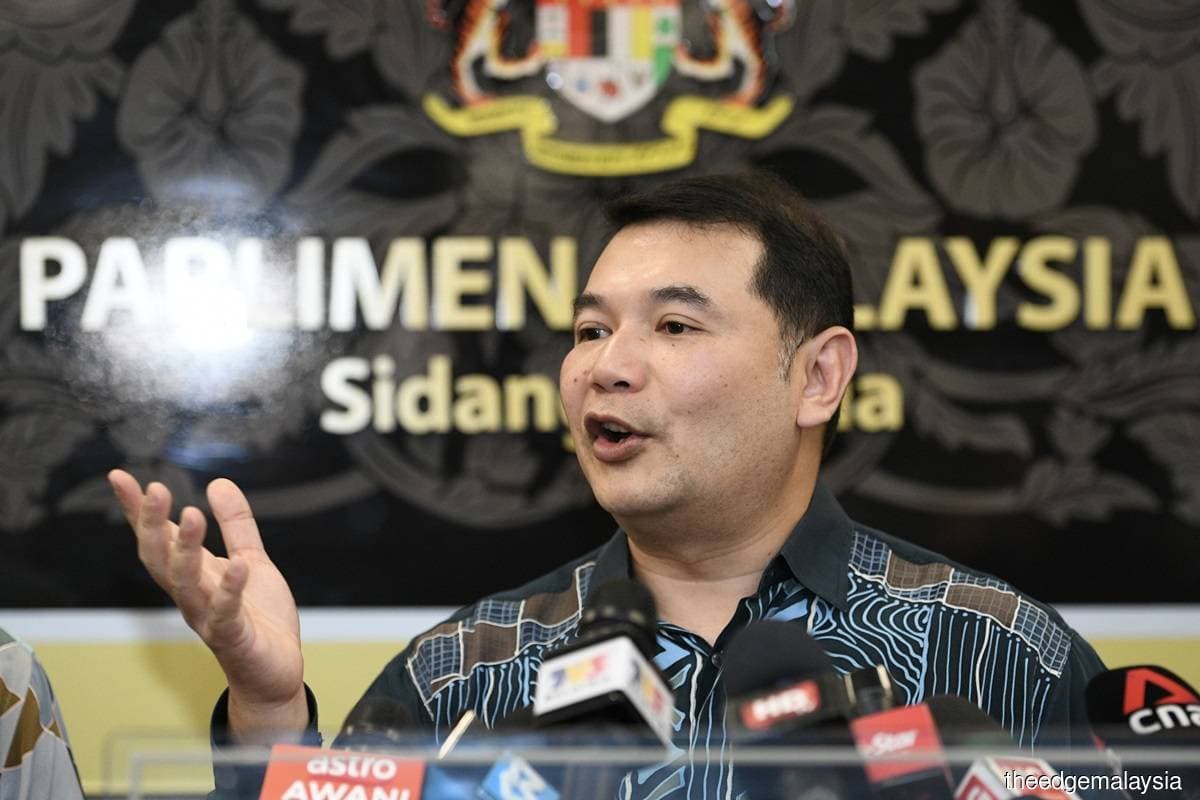
"Based on a back-of-envelope calculation... assuming an average of 50 employees per company, with an allocation of RM200 per month per employee, totalling RM2,400 annually per employee, for the year 2024, it will cost about RM20 million to RM30 million. It will not be more than RM30 million."
KUALA LUMPUR (Nov 30): The progressive wage pilot project — slated to be carried out on a pool of 1,000 companies between June and September 2024 — is estimated to cost between RM20-30 million, according to Economy Minister Rafizi Ramli.
He said that the actual cost of the pilot project can only be determined after the enrollment and selection of the companies in the second quarter of 2024, considering that different companies will have varying numbers of employees.
"Based on a back-of-envelope calculation... assuming an average of 50 employees per company, with an allocation of RM200 per month per employee, totalling RM2,400 annually per employee, for the year 2024, it will cost about RM20 million to RM30 million. It will not be more than RM30 million," said Rafizi in a news conference at the Parliament building on Thursday.
Rafizi added that qualified companies for this pilot project will be required to submit documents related to employees’ wages to the relevant agencies. Upon confirmation that the companies have fulfilled all requirements, the government will decide on disbursing incentives on a quarterly or six-month basis.
"For the employees, they will be required to participate in specific upskilling training determined by the committee for their particular sector. If an employee does not comply with the upskilling, they will be dropped from the scheme," said Rafizi.
Based on past engagement with stakeholders, the PKR deputy president said most employers have "lauded" the progressive wage policy, hence he is not concerned about the potential reception of the policy.
“From the engagement session, the feedback we got, I am actually not worried about participation, I am worried about oversubscription. I am actually quite positive, I think from our discussion [with stakeholders], it will be well received by employers," he said.
“In the talent market now, the main issue for employers, companies and businesses is to get the talent that really matches their needs, and the wage difference between the top companies, the big companies, with SMEs or even certain GLCs (government-linked companies), the difference is a lot.
“The cannibalisation has been happening, meaning for SME employers, it is already challenging for them to hire. After hiring, they train their employees for a year and they (the employee) switch jobs. So, this attrition is actually the main issue for our country’s economy,” he added.
Rafizi also emphasised that the government’s approach to voluntary opt-in for the progressive wage policy is not due to industry’s pushback or political lobbying.
“We have sat down with them [stakeholders] and taken everyone’s view, and the decision to do this voluntary opt-in is not because of pushback, not because of lobbying. It is our belief that at this moment, if we were to make it mandatory, our economy cannot absorb it.
“Because 97% of the companies are micro-SMEs, and with voluntary opt-in and government incentive, and a commitment and structured upskilling for higher productivity on the part of the employees, employers have so far lauded it,” he said.
Govt yet to finalise business sectors for chosen 1,000 companies
In regards to the sectors that these 1,000 companies Putrajaya is going to choose from, the Pandan MP said the government has not finalised the types of businesses that will be involved, but provided certain example criterias that the government will look at.
One consideration is whether the sector is considered a critical industry that is aligned with the nation's economic restructuring agenda and requires a higher number of talent.
“For example, if the sector’s wage gap is too large, even if we choose that sector, it is likely that the number of employers who are able to [fulfill wage rise] may be too small, [it is] the factor of ability and in terms of the gap, because the whole idea is to provide the liftoff [in wages],” he said.
“So we will consider all these factors, but it is a bit difficult for us to establish it now because it is voluntary opt-in. So, we will decide how to guide it.
“We have already had a few concepts and guidelines on how we want to choose. So, it depends on several conditions, these considerations need to be discussed and decided at the executive committee level later,” he added.
Rafizi emphasised that the challenge for the ministry is to ensure that the plans under the pilot project, when implemented, genuinely impact the labour market, pay structure and skill talent in the economy.
“The burden is for us to make sure what we plan and the design, when it is implemented, really have an impact, and to make sure that for every RM1 the government allocates, it really improves the structure of our labour market,” he said.
“It is about the teething operational problem once you implement it, because you are talking about tracking and making sure those who are in the scheme on the part of the employees actually went through the upskilling.
“We have to make sure that all the upskilling and the right training are in place, and then we also want to make sure that the employers conform to the conditions .I think once we go through that dry run until September 2024, by then we will have a much better view about... savings from all th erationalisation and fiscal consolidation, [then] we would be in better position to decide how much [to allocate for the progressive wage incentives],” he added.
